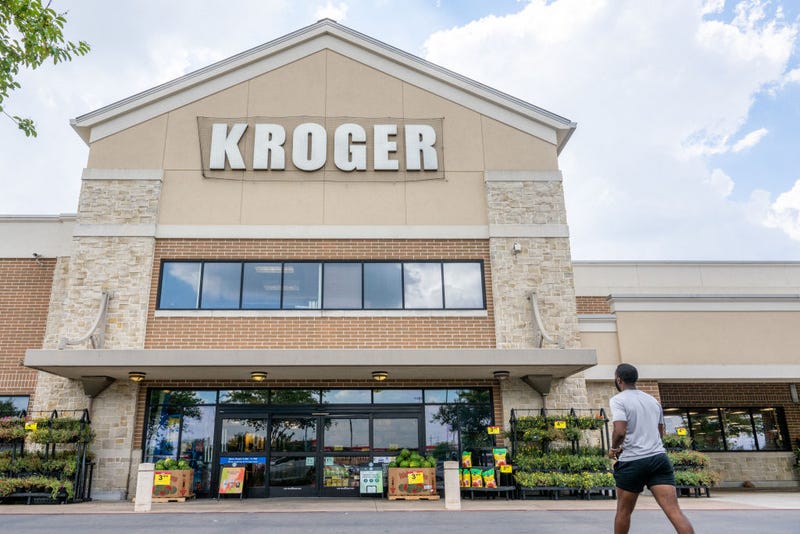
In October 2022, Kroger agreed to buy rival Albertsons in a $25 billion deal to combine the two supermarket chains. While federal regulators are still reviewing the legality of the deal, many shoppers are wondering what changes may be in store if the merger goes through.
Kroger says above all else, its combination with Albertsons will mean lower prices and more choices for more customers.
"Kroger will invest $500 million to reduce prices beginning day one, as well as an incremental $1.3 billion to enhance the customer experience," the grocer said in a statement. "The merger will mean more fresh, affordable food is available to more people in more communities."
According to The Cincinnati Enquirer, the savings to shoppers will be about 22 cents per $100 spent.
"The two companies have said they'll 'invest' $500 million in lowering prices on items on shelves. But how does that compare with the companies' combined $226 billion in sales? Less than 0.25%," The Enquirer reported.
Kroger said it will not close any stores, distribution centers or manufacturing facilities or lay off any frontline associates as a result of the merger. The company also plans to invest $1.3 billion into Albertsons stores "to enhance the customer experience" and to "build on its recent investments in associate wages, training and benefits."
"As a part of the regulatory process, we anticipate divesting − or selling − some stores. These stores will remain open," the CEOs of Albertsons and Kroger, Vivek Sankaran and Rodney McMullen, wrote in an op-ed for The Enquirer. "The combined company will have one of the largest unionized workforces in the country. We are committed to protecting and expanding opportunities for union jobs."
Several states have indicated they're reviewing the proposed merger to ensure it is lawful, does not undermine competition, and is fair to consumers, workers, farmers and suppliers. Last week, the Washington state Attorney General filed a lawsuit to block the merger nationwide, arguing it would harm consumers and raise prices.
"Shoppers will have fewer choices and less competition, and, without a competitive marketplace, they will pay higher prices at the grocery store," Attorney General Bob Ferguson said in a statement.
Ferguson's lawsuit details that QFC — which is owned by Kroger — considers Safeway/Albertsons as its main competitor in the Seattle area. Across Washington, Albertsons considers either Fred Meyer or QFC — also Kroger owned — its primary competitor in every local market in Washington.
"The supermarkets monitor each other's prices and adjust the cost of products as part of that competitive relationship. Albertsons’ Seattle Division, for example, has lowered its prices to compete with Fred Meyer and QFC, and highlighted in its advertisements products where it offers a better deal," the AG's office said. "The merger eliminates that competition."
In response to the lawsuit and in light of continuing dialogue with regulators, Kroger said it was pushing back its timeline for closing the deal to the first half of its fiscal year, which ends in mid-August.
"We remain committed to closing the transaction and providing the meaningful and measurable benefits that we promised when we originally announced the transaction," the company said.
Kroger and Albertsons are the second and fourth largest supermarket operators in the country. They currently have more than 700,000 employees in nearly 5,000 stores across 49 states, and a combined annual revenue over $200 billion.
